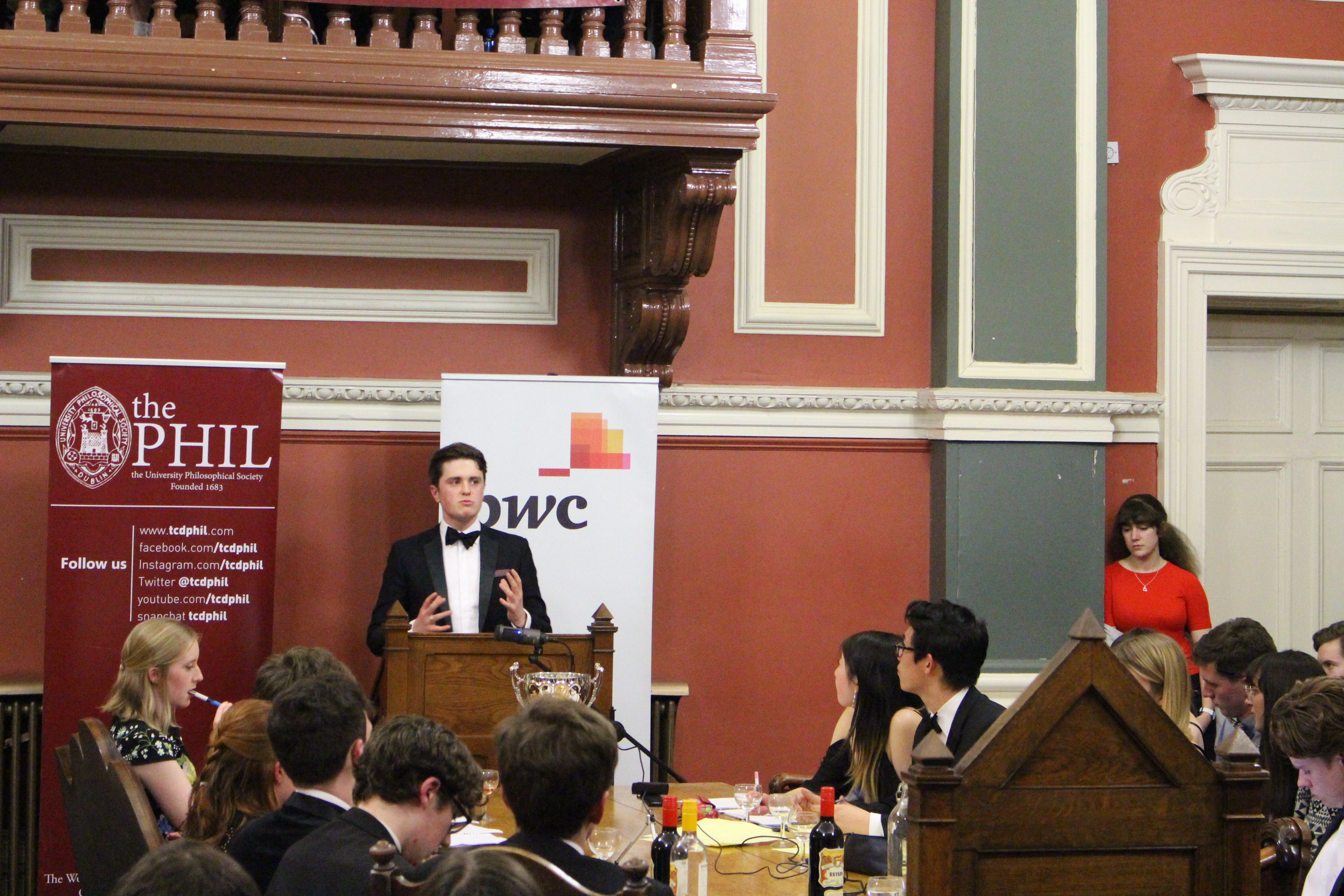
Chair Adjudicator was radio and television broadcaster Aine Lawlor, who swiftly opened the debate after a slight delay. Registrar Sheila Naughton provided a well-received welcome, featuring her concerns on how this debate could live up to the lively meme debate that took place earlier in the week, with some good-spirited shade thrown at the Yale guests, who took the Harvard jokes with good spirit.
Judges included economist John Fitzgerald who chaired the debate, RTE’s Business Editor David Murphy, Colm Green, and Sarah Mortell. Clare Elwell opened the floor for the proposition, and after about five minutes, my comprehension of the debate started to waiver. There is no doubt that the speeches on each side were well-prepared and and given much thought, but if you weren’t quite up to date on the inner workings of the economy (as I was not), you may have found yourself struggling to keep up with this quick-paced debate.
The speed of the debate was something the judges commented on in their final review, as although the speakers for the evening were clearly very articulate students, a handful spoke at a pace that was difficult to keep up with – I was glad to discover it wasn’t just myself who felt this way.
The first speaker for Yale, Shirley Kuang, noted the benefits of globalisation, contesting that it “raises global economic standards” and can “organise good social structure.” Rebuttal was provided by the second TCD speaker, Christopher Costigan, whose argument was persuasive, but also emphatic in its delivery.
Henry Zhang, speaking on behalf of the opposition, languished over the fact that the Yale team were the only team to offer a clear definition of what globalisation was. Subsequently, there was a spike in the competitiveness in the room as the Trinity team furiously scribbled notes, anxiously sipped Revero and grew increasingly frustrated as intervention after intervention was denied by their counterparts.
The final proposition speaker, Mark Finn, based his argument around the idea of protectionism; that people want to preserve their jobs and their communities due to human nature. Yale’s Evan Lynyak made the perfect counter-argument, stating the irony of a team who just flew them halfway around the world to share ideas through debate, are a team arguing against globalisation, an argument which was met with raucous approval from the audience. This was a turning point in the debate, as Yale reinforced their argument beyond little doubt.
The judges left the GMB Chamber to discuss their thoughts on the strength of the arguments, whilst speakers from the Phil added to the arguments already put forward. Izzy Sweeney admitted that she “had never studied economics in her life” and implied that she was semi-winging it with what she thought was right, whilst still highlighting some key points regarding the fluctuation of global economies.
The judges returned with the verdict: Yale had won. They noted the expectation of history and politics in a debate dominated by economic-based arguments. The Trinity team appeared disheartened but not downtrodden as they congratulated their opponents. Those from the Student Economic Review thanked all those involved with the night.
.
Though I may have spent the majority of my time feeling like I didn’t have sufficient understanding to fully follow the debate, I thoroughly enjoyed the spectacle that entailed. In this sense, The Phil and Student Economic Review provided guests and students alike with a superb opportunity to sit in on a debate that proved to be informative and accessible, whilst maintaining a high caliber of lively debate.






